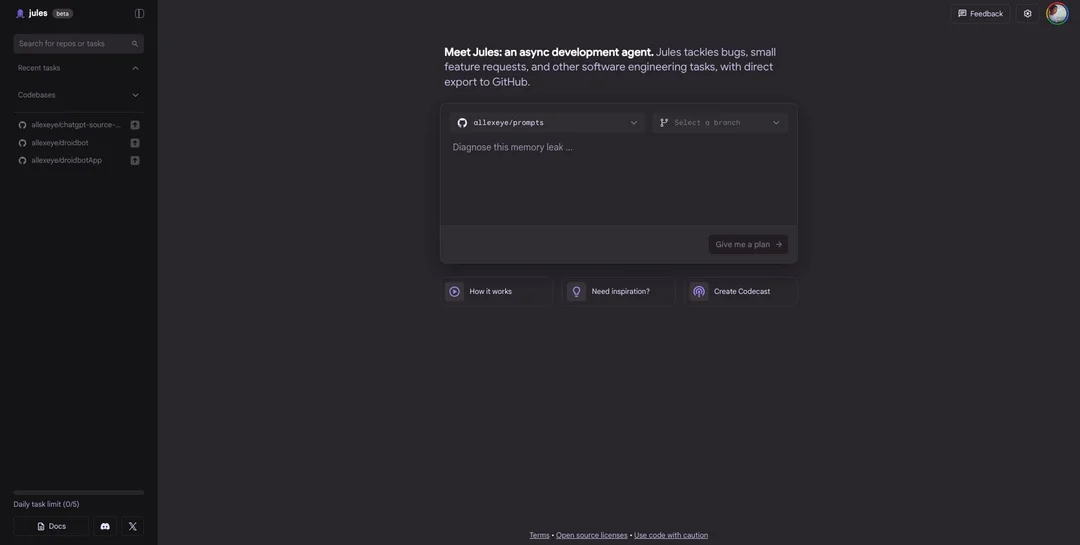
Google’s AI Coding Agent ‘Jules’ Enters Public Beta, Challenges GitHub Copilot and OpenAI’s Codex
Google has officially launched its experimental AI coding agent, Jules, into a global beta, offering developers a powerful new tool to automate coding tasks. This move positions Jules as a direct competitor to Microsoft's GitHub Copilot and OpenAI's Codex, marking a significant development in the evolution of AI-assisted software development. The beta is now open to any developer with a Google account giving them the chance to allow AI to automatically file pull requests on their behalf.
First unveiled in December 2024 alongside Gemini 2.0, Jules now runs on the advanced Gemini 2.5 Pro. To encourage adoption, Google is offering a generous starter tier of five free tasks per day. This free quota makes it an accessible option for developers eager to explore the capabilities of AI coding agents.

Unlike traditional autocomplete tools, Jules operates as an autonomous agent. It spins up a disposable Cloud VM, clones the target repository, and meticulously formulates a multi-step plan before making any changes. The agent is capable of handling a variety of tasks, including bumping dependencies, refactoring code, adding documentation, writing tests, and addressing open issues. Every modification is then presented as a standard GitHub pull request for human review, ensuring oversight and control.
Google emphasizes that Jules possesses a deep understanding of your codebase, thanks to its integration with the latest multimodal Gemini model. This allows it to intelligently analyze large file graphs, project history, and repository-specific contribution guidelines. Jules is also private by default, it doesn’t train on your private code, and your data stays isolated within the execution environment.
The Jules beta removes the previous wait-list restriction, allowing anyone to sign up at jules.google with a GitHub account and begin assigning tasks using the designated assign-to-jules label. Additional usage options and enterprise controls are planned for release later in the year. According to Google, we’re at a turning point: agentic development is shifting from prototype to product and quickly becoming central to how software gets built.
The release of Jules comes hot on the heels of Microsoft's advancements with GitHub Copilot, including similar bug-fix and feature-implementation workflows. Jules offers a comprehensive solution that integrates planning, diff generation, and PR creation into a single tool, which could streamline workflows for teams already invested in the Google Cloud ecosystem.
Jules is now listed on the Google Labs experiments page, solidifying its position as a key initiative within Google's AI strategy. To further engage with the developer community, Google will host an AMA on May 21, 2025, at 22:30 UTC on the Labs Discord server.
The launch of the Jules beta signals a significant shift from code completion tools to full agentic development. With its generous free tier and seamless GitHub integration, Jules has the potential to become the go-to solution for teams experimenting with Gemini APIs. The critical question remains: how effectively can Jules scale beyond Python and JavaScript, and can it match GitHub's repository-level context depth? For now, developers have a low-risk opportunity to let an AI generate a "file the PR" and assess its capabilities firsthand.
What impact do you think AI coding agents like Jules will have on the future of software development? Share your thoughts and predictions in the comments below.